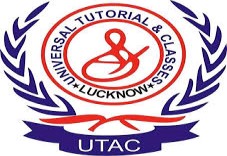“There are no secrets to success. It is the result of preparation, hard work and learning from failure.” – Colin Powell, Former US Secretary of State.
Every year lakhs of aspirants aim to crack the JEE entrance exam to achieve their dream of securing a coveted seat in some of the most prestigious engineering institutes in the country- the IITs and the NITs. The JEE Entrance Exam is the gateway to realize one’s dream of becoming an IITian and entering a world which further opens a plethora of opportunities for your future. But as it happens, this exam is just as difficult to crack as it is prestigious. This exam is considered to be one of the toughest in the country and presents students with fierce competition. Lakhs of students start preparing for this college level entrance exam right from the 9th or 10th standard. While some take help from various coaching institutes, others resort to self-study and self-assessment.
The JEE entrance exam is divided into 2 parts- JEE (Mains) and JEE (Advanced). Clearing the JEE (mains) is required to secure admission in the NITs, IITs and other Centrally and State funded technical institutes whereas passing and securing a good rank in the JEE (advanced) is essential to grab a seat in the IITs. JEE (mains) is a qualifying exam for JEE (Advanced). The Mains exam is conducted 4 times in a year in the months of February, March, April and May. It is conducted by the National Testing Agency (NTA) and registration for the exam begins in the month of November.
Let us look at the syllabus and Exam Pattern of the JEE (Mains) Exam first.
Exam Pattern
The exam is conducted in the online mode i.e., it is a computer-based test. It is divided into 3 subjects- Physics, Chemistry, Mathematics. Each subject has 2 sections- Section A and Section B. Section A has 20 Multiple Choice Questions (MCQs) and Section B has 10 Numerical Value type questions out of which only 5 are to be attempted.
For every correct answer the candidate is given 4 marks but for every incorrect answer there is a negative marking of (-1). There is no negative marking for Section B of the exam. Thus, in total there are 90 questions in the exam (30 for mathematics, 30 for chemistry, 30 for physics), out of which 75 are to be answered by the candidate. Maximum marks are 300 and the time duration for the exam is 3 hours.
Syllabus
The JEE (mains) tests students on their knowledge of 3 subjects- Physics, Chemistry and Math. Each subject carries an equal weightage of 100 marks. The syllabus for the exam is basically what the students of science stream study from class 9 to class 12 but the difficulty level is often quite high from their ordinary NCERT textbooks. Therefore, a student is advised to study the syllabus before starting their preparation for this competitive exam. The syllabus, as provided by the NTA, is as follows:
Physics:
- Physics and Measurement
- Rotational motion
- Thermodynamics
- Kinematics
- Work, energy and power
- Properties of solids and liquids
- Gravitation
- Laws of motion
- Oscillations and waves
- Electronic devices
- Kinetic theory of gases
- Current electricity
- Communication systems
- Electromagnetic induction and alternating currents
- Magnetic effects of current and magnetism
- Optics
- Electromagnetic waves
- Atoms and nuclei
- Electrostatics
- Dual nature of matter and radiation
- Experimental Skills
Chemistry:
Physical Chemistry– 1. Some basic concepts in chemistry
- States of matter
- Atomic structure
- Chemical bonding and molecular structure
- Chemical thermodynamics
- Solutions
- Equilibrium
- Redox reactions and electrochemistry
- Chemical kinetics
- Surface chemistry
Organic Chemistry: 1. Purification and characterization of organic compounds
- Hydrocarbons
- Chemistry in everyday life
- Principles related to practical chemistry
- Organic compounds containing halogens
- Organic compounds containing oxygen
- Organic compounds containing nitrogen
8.Polymers
- Some basic principles of organic chemistry
- Biomolecules
Inorganic Chemistry: 1. Classification of elements and periodicity in properties
- Hydrogen
- Block elements (alkali and alkaline earth metals)
- P Block elements group 13 to group 18 elements
- d- and f – block elements
- Coordination compounds
7.Environmental chemistry
- General principles and processes of isolation of metals
Maths:
- Complex numbers and quadratic equations
- Matrices and determinants
- Sets, relations and functions
- Mathematical induction
- Permutations and combinations
- Mathematical reasoning
- Limit, continuity and differentiability
- Integral calculus
- Three-dimensional geometry
- Differential equations
- Binomial theorem and its simple applications
- Sequence and Series
- Vector algebra
- Statistics and probability
- Trigonometry
- Coordinate geometry
After getting well acquainted with the syllabus, one must focus on preparing a structured strategy and plan for their JEE (mains) preparation. Here are some helpful tips that one must include in their study plan to ace this entrance exam:
- Clear your concepts and practice daily
All the subjects to be prepared in this exam are highly technical and require a clear understanding of the basic concepts. One cannot solve and practice a lot of numerical questions if their core concepts are not clear. Thus, it is very important to first understand the theory and fundamentals of the subject, before moving on to problem solving questions.
Another essential tip to keep in mind while preparing for your JEE (Mains) exam is to practice regularly and not skip important topics. Taking too many breaks or studying on the weekends only, breaks the momentum of one’s study plan, thus paving way for too many distractions. Therefore, it is highly advised that students must prepare a timetable of their study schedule and stick to it religiously.
- Avoid indulging in too many books
It is said that too many cooks spoil the broth. Similarly, too many books can spoil your preparation strategy. Rather than referring to a lot of extra books and tedious study material, one must focus on some standard books and sample papers. Make NCERT books your bible and then divert your attention to 1-2 extra help books available in the market. Referring to a lot of books can lead to too much confusion and cluttering of the mind. As such, it is better to prefer quality over quantity and practice more from your standard books.
- Practice mock papers
One gets the idea of a particular exam’s pattern by practicing previous year question papers and mock tests. Practicing these papers will give you the much-needed confidence and assurance that you require while preparing for this taxing exam. One should do at least 20-30 mock papers before appearing for the final exam. You can easily find sample papers/previous year papers online. Search for something like JEE Main 2021 Exam Paper February 24 Shift 1, and you’ll get plenty of results.
- Do smart work and not just hard work
Hard work is the key to success. But in exams like JEE (mains) which not only test your conceptual knowledge but also your time management and analytical skills, one must resort to smart work. Preparing flashcards for formulas and equations, completing your mock papers in 2.5 hours, and doing calculations without calculators are some of the tricks you can add to your preparation strategy which will give your study plan the appropriate boost it requires.
- Revision is key
Studying for an exam proves to be fruitful only when one can retain all the information and facts that they’ve studied. Therefore, revision is key in any exam preparation. Revising the syllabus again and again and going through your notes periodically will help you remember the key concepts and improve your memory power. Thus, make sure to revise your entire syllabus at least twice before your final exam day.
JEE(Mains) is one of the toughest entrance exams of the country and attracts a crowd of lakhs of aspirants every year. One must step into this battle of the wits with foolproof preparation and determination. Hard work and practice must be your 2 weapons in this exam which will lead you to the path of success. One must never lose hope and constantly talk to your peers, parents and teachers to keep your motivation quotient high. So, keep your best foot forward and step into your preparation journey with a positive attitude. All the best!










Like what you read? Give author a thumbs up?
Bookmark this article to read later, drop a remark in comment section and share with your friends..